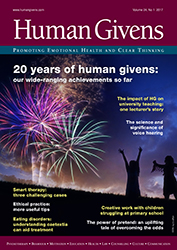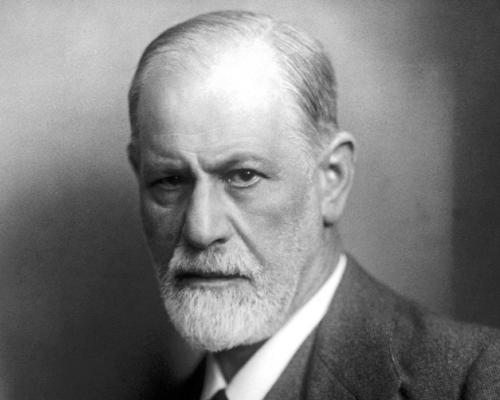The Social Brain
Denise Winn talks with Professor John Ratey about the brain as a social organ, and the need to be alert early to inept social skills.
Winn: Professor Ratey, what exactly do you mean when you use the term, 'social brain'?
Ratey: I define it as the parts of the brain that makes us social! There are certain areas in the brain which we had thought of as having specific functions unrelated to our social lives but which we are coming to realise are very heavily involved in our social development. Neurologists and neuroscientists have shown, for instance, that damage to the cortex can affect our ability to be empathic, that problems in the cerebellum can cause social ineptness and that deficits in the right hemisphere can make it hard to understand life's overall picture. I think of these and other parts as making up the social brain.
A motor problem that is seemingly unrelated to what we think of as making us social — our emotions and empathy skills and all that — can, from birth, influence the ability to bond, the ability to share, and so on. If your motor system isn't allowing you to move your head gracefully and smoothly, navigating with mom when she points to something in the environment and begins the process of sharing what she sees with you, then you miss the critical period for developing social sharing (which begins with the sharing of attention), and it is hard to gain that ability later. The skill of shared attention is a major component of social communication and one of the building blocks of language and conversation. In very many of the people with social problems that I've seen over the years, a lot of them don't — or didn't — have the basic concept of sharing. When a four year old fails to share, we should be alerted to the fact that there's a problem.
Winn: So, now, when you come across a failure to share, do you think that a social brain deficit could be the reason for it?
Ratey: Yes, or rather, I would think it could be a contributing factor. It is never going to be one thing only. But, if you don't have that concept of sharing early on, you're not going to get any practice at social relationships. And practice is something that we depend on.
Winn: It is the cerebellum, isn't it, that is involved in the kind of attention you mentioned just before? I am particularly interested in what you have to say in your book, A User's Guide to the Brain, about its role in the shift of attention.
Ratey: Yes, that is one of the hot areas of research in some of our centres where they are looking at attention deficit disorder. There is a finding that one of the few areas that is consistent across scans is a deficit in the cerebellum. If you have a difficulty in shifting your attention, a difficulty with rhythmically, seamlessly, moving from one thing to another, then your experience of the world and the experience you portray to the world is going to be very choppy, very discontinuous and very difficult in a social situation where smoothness rules.
Winn: And now it is thought that this cerebellar deficit may explain some of the behaviours of autism?
Ratey: Yes, that's where this work really started. Being off balance, not being able to do the social dance is a big element in autism. Neurologist Eric Courchesne has found that while a normal baby can shift attention from a parent's nose to an eye or to the mouth in a fraction of a second, an autistic baby may need as many as five to six seconds to make these shifts.
If we imagine ourselves in the position of the autistic baby, autism starts to make more sense. If it takes five or six seconds to shift your gaze from your mother's nose to her eyes, you are not going to see her face as a coherent image. You are going to see disparate parts of a face that do not combine, in memory, into a meaningful whole. They will be stored simply as face-pieces, and that has been borne out by what many high functioning autistic people have said. They may talk of what we term 'visual dropouts' — not being able to see, for instance, all of a tree at one time, seeing instead just one branch, or one leaf or the bird that is perched on a branch.
So when it comes to social competence, this inability to shift attention can have devastating consequences. The look on a mother's face or a shift in tone of voice is fleeting. If a young autistic boy is looking at a puppy, he will miss her smile. If he pulls the puppy's tail, he will miss her frown. All that vital social information is lost.

Winn: It isn't just in autism, of course, that cerebellar damage may have that kind of impact. Less obvious damage may account for what you call the "social klutz".
Ratey: Right — the kind of person who is awkward, uncoordinated, out of step, lacking social graces, all of it driven by an inability to properly pay attention, share attention, and coordinate all the many simultaneous incoming and outgoing signals.
I would say there is a whole spectrum of not so much damage but differences. So you will have someone with Asperger's syndrome who doesn't have the same differences that someone with autism has. And then you have just your typical engineer who is very socially awkward but does have the feeling responses that perhaps people with Asperger's don't have. Because it is an interactive kind of thing, if you have a difference in the cerebellum, then you are likely to have differences in the parietal lobe, which has to do with knowing where we are, in terms of physical position, and not standing too close to another person and having a sense of social space. That area is very tied into the cerebellum and when there is a difference in one you often see a difference in the other.
Winn: A deficit or a difference?
Ratey: Well, I really prefer to say difference. I don't like the word deficit anymore.
Winn: This isn't just political correctness?
Ratey: No. We do have different shades. We wouldn't have our cyberworld, which is maybe good, maybe bad, if we didn't have these autistic-like people.
Winn: So it is all on a range of normal?
Ratey: I'd say it's just a range. I think we are challenged to say what is normal any more. I'm certainly not one who has ever been accused of being politically correct and I rebel against those kinds of things.
Winn: Can we look at some of the effects that differences in the ventromedial cortex cause?
Ratey: Yes, a lot of interesting work has been done, mainly by the distinguished neurologist Antonio Damasio but also others, looking at this key area. The ventromedial cortex is a section of the frontal lobes and it is responsible for the emotion that colours our decision making processes, especially in the personal-social realm.
Contrary to the popular notion that decision making requires a cool head, it is feelings that point us in the right direction, and help us make moral, personal, predictive and planning decisions. This particular area is crucial not only for knowing, understanding and controlling our own emotional experience but also knowing that other people have their own emotional experience.
In one of Damasio's famous cases, a man called Elliot had part of the tissue from the ventromedial cortex removed because it was damaged by a tumour. Whereas Elliot had been a capable businessman and caring husband before, he was very different afterwards. He moved and spoke as he had before, but he started to make bad work and personal decisions. He lost his job because he couldn't prioritise his work, instead getting hooked on insignificant detail which might occupy him for an entire day, such as whether to sort a stack of documents by date or name. He then set up partnerships with con men and lost all his money, and then divorced his wife to marry a prostitute, whom he later divorced as well.
Tests showed he had perfectly normal intellect but a dearth of emotional reactions. Since then Damasio has identified 12 other patients with similar brain damage and a resultant lack of emotion and poor social judgement, leading to appalling social decision making.
Winn: You mention quite a few areas of the brain in connection with social effects and there isn't room to explore them all here. But I would like to ask you about the role of a region called the anterior cingulate gyrus. This is in the centre of the brain and is, among other things, concerned with free will.
Disturbances in this area, which can be caused by epilepsy, surgery, chemical imbalance and so on, can have social/emotional effects as diverse as apathy, impulsiveness, disinhibition, psychosis and obsessive compulsive behaviour. It seems to be implicated in Tourette syndrome, where people often develop marked physical tics and come out with torrents of foul language — a strange set of symptoms which make remarkable sense to me now, when looked at from this viewpoint. Has the Tourette's connection been known about for some time, or is it recent?
Ratey: It's recent. It certainly makes sense that the cingulate is an important way station in our emotional life. It's connected to what we call the obsessive compulsive disorder (OCD) circuit. There's a reverberating circuit effect and so a thought or action just keeps going and going and going. The cingulate is involved in a lot of different pathologies, and so it should be, because it controls output and input from our bodies' sympathetic nervous system. It's the command centre for action and excitement. If you have damage on both sides of the cingulate, then you are not going to initiate much.
Winn: But many of the sort of things we've been discussing can be altered by training or practice, I think you say.
Ratey: Oh, I think so. Some of my people who have these differences, if you give them the right scripts, they can learn how to do it.
Winn: Can you give me an example?

Ratey: Okay, well, let's go to an extreme. In some of the autism centres in the United States, one of the big training methods is to develop social practice sessions early on. The kids are taught not just to ask, "How are you?" in a contact with someone they know, but to ask a second question, which focuses on remembering something about that person and asking something personal like, "How did it go for you yesterday, at the test?" or whatever. That can be done through training. A study showed that just doing that really increased children's socialisation.
It is the same thing with my engineers or my computer people. It is enormously helpful just getting them to modify the way they talk on the phone or to realise that, when they meet people, they don't have to just talk and talk and talk, which some of them do and which then chases everybody away. Getting focused solely on answering another person's question about themselves, instead of asking their own questions, ruins a lot of social interactions. Just by changing the script, or rather, by giving them a script, one can see a big change.
Winn: And does it then become second nature to them to behave that way?
Ratey: Exactly. They get the practice. My people, when I see them in their 20s, are absolutely brilliant in their fields but they don't know the first thing about social relationships because they haven't had any practice in any.
By the time they get to their teens, they are really social phobics. They have terrific anxiety in any social situation because they have been such a failure at them.
Winn: Getting people to practise these sorts of things are what many therapists have been doing, regardless of knowing about whether there are differences in the brain which explain the development of the behaviour in the first place. So how does knowing what is going on in the brain help us?
Ratey: It helps us to be aware of what's going on and get in earlier. Say a child of four or five, just starting school, is having a difficult time socially. If you begin to look at what the problem is and deconstruct it, then your prescription of the remedy is going to be much better informed.
Winn: Whereas they tend to be written off as...
Ratey: ... as kids who don't want to get involved, who really like being off by themselves, when that is not the case at all for many of these children. They really do want to be involved with others, but they just don't know how to do it. Even these kids who don't know how to share, and don't particularly want to share, they really feel the pangs and they want to have friends, but don't know why they can't.
Sometimes it's as easy as just giving an instruction — it's as simple as that, sometimes — and people's lives could be so different. I recently saw a guy who was in some kind of support group where the leader asked a question, and in reply he just talked and talked and talked and wouldn't let her respond. She called him on it, and instead of feeling hurt, he said, "Oh, my god, thank you." So a lot of the time, it is just a matter of bringing these things to light.
DENISE WINN is the editor of the Human Givens Journal.
This article first appeared in "Human Givens Journal" Volume 8 - No. 1: 2001
 Spread the word – each issue of the Journal is jam-packed with thought-provoking articles, interviews, case histories, news, research findings, book reviews and more. The journal takes no advertising at all, in order to maintain its editorial independence.
Spread the word – each issue of the Journal is jam-packed with thought-provoking articles, interviews, case histories, news, research findings, book reviews and more. The journal takes no advertising at all, in order to maintain its editorial independence.
To survive, however, it needs new readers and subscribers – if you find the articles, case histories and interviews on this website helpful, and would like to support the human givens approach – please take out a subscription or buy a back issue today.
Latest Tweets:
Tweets by humangivensLatest News:
HG practitioner participates in global congress
HG practitioner Felicity Jaffrey, who lives and works in Egypt, received the extraordinary honour of being invited to speak at Egypt’s hugely prestigious Global Congress on Population, Health and Human Development (PHDC24) in Cairo in October.
SCoPEd - latest update
The six SCoPEd partners have published their latest update on the important work currently underway with regards to the SCoPEd framework implementation, governance and impact assessment.
Date posted: 14/02/2024















